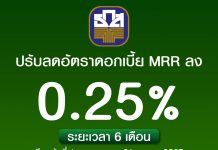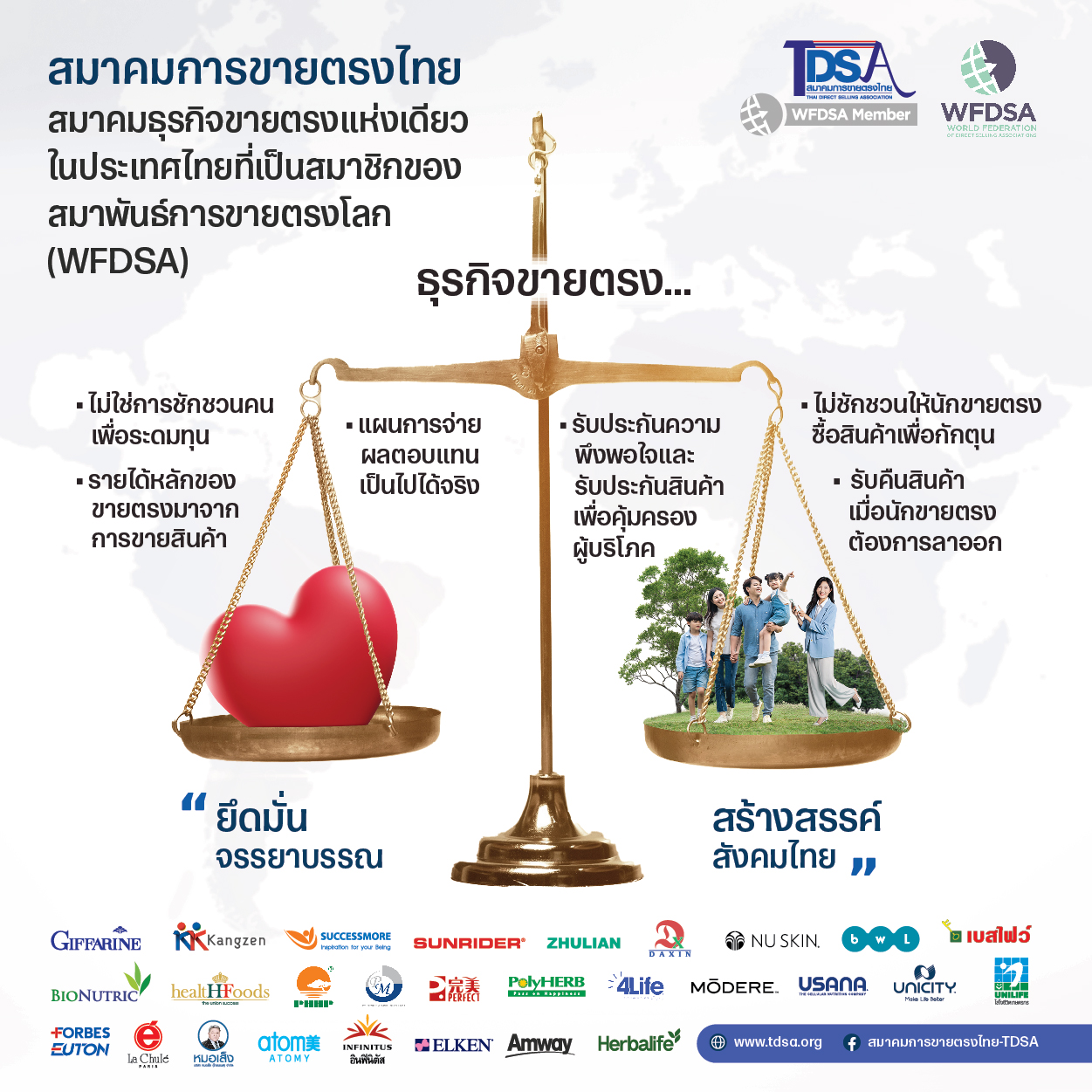ศูนย์วิจัยกสิกรไทยเปิดมุมมองทิศทางเศรษฐกิจ คงประมาณการจีดีพีปี 2566 ที่ 3.7% ขณะที่ปรับลดตัวเลขส่งออกลงจากเดิมที่ -0.5% มาที่ -1.2% ด้านการท่องเที่ยวขยับดีขึ้น ตามสถานการณ์จำนวนนักท่องเที่ยวต่างชาติที่ฟื้นตัวชัดเจนขึ้นในช่วงไตรมาสแรกของปี ประเมินวิกฤตธนาคารชาติตะวันตกต่อไทยอยู่ในกรอบจำกัด
นางสาวธัญญลักษณ์ วัชระชัยสุรพล รองกรรมการผู้จัดการ บริษัท ศูนย์วิจัยกสิกรไทย จำกัดกล่าวว่า จากข้อมูลที่มี ณ ขณะนี้วิกฤตธนาคารขนาดกลางและเล็กของสหรัฐฯ คงจะยืดเยื้อ เนื่องจากตราบใดที่ธนาคารที่ถูกจับตามองยังไม่ได้แก้ไขปัญหางบดุล อาทิ การกระจุกตัวของเงินฝาก หรือการบริหารความเสี่ยงอัตราดอกเบี้ย ก็จะยังทำให้ผู้ฝากเงินขาดความมั่นใจ นอกจากนี้ การที่ทางการสหรัฐฯ มีเจตนาที่จะแก้ไขปัญหาโดยไม่ใช้เงินภาษีของประชาชน ทำให้การตัดสินใจอาจใช้เวลา อีกทั้งธนาคารที่จะเข้ามาซื้อกิจการในธนาคารที่ประสบปัญหา คงใช้เวลาในการตัดสินใจเช่นกัน สุดท้ายแล้ว ธนาคารที่เป็นประเด็นก็อาจหลีกเลี่ยงการปิดตัวลงได้ยาก อย่างไรก็ตาม เชื่อว่า การที่ธนาคารกลางสหรัฐฯ และธนาคารกลางชาติอื่นๆ เข้าดูแลสภาพคล่องของระบบอย่างรวดเร็ว น่าจะช่วยยับยั้งสถานการณ์ไม่ให้ลุกลามจนกลายเป็นวิกฤตการเงินโลกได้ ส่วนในระยะถัดไป ประเด็นติดตามอยู่ที่ทางการสหรัฐฯ จะปรับปรุงกฎหมายการกำกับดูแลภาคธนาคารสหรัฐฯ ให้เข้มงวดขึ้นสำหรับธนาคารขนาดกลางและเล็กหรือไม่ ซึ่งหากมีการดำเนินการได้จริงในทางปฏิบัติ ก็อาจทำให้ธนาคารระมัดระวังการปล่อยสินเชื่อมากขึ้น กระทบผลประกอบการธนาคารกลุ่มดังกล่าวในระยะกลาง
นางสาวณัฐพร ตรีรัตน์ศิริกุล รองกรรมการผู้จัดการ บริษัท ศูนย์วิจัยกสิกรไทย จำกัดกล่าวเพิ่มเติมว่า สำหรับผลกระทบต่อเศรษฐกิจสหรัฐฯ นั้น คาดการณ์ว่าปัญหาภาคธนาคาร จะส่งผลให้เศรษฐกิจสหรัฐฯ ชะลอตัวลงมากกว่าเดิม และมีแนวโน้มสูงขึ้นที่จะเข้าสู่ภาวะถดถอยบางไตรมาสในช่วงครึ่งหลังของปี ซึ่งภาพความกังวลข้างต้น สะท้อนผ่านโมเมนตัมการปรับดอกเบี้ยนโยบายของเฟดในการประชุมครั้งล่าสุด (วันที่ 21-22 มีนาคม) ที่ผ่อนคันเร่งลงด้วยการปรับขึ้นอัตราดอกเบี้ยนโยบาย 0.25% จากช่วงก่อนเกิดปัญหาภาคธนาคารสหรัฐฯ ที่ตลาดมองว่าจะมีการปรับขึ้นอัตราดอกเบี้ยนโยบายถึง 0.50% ทั้งนี้ เศรษฐกิจสหรัฐฯ ที่มีแนวโน้มชะลอลงมากกว่าเดิมน่าจะมีผลกระทบต่อไทยผ่านช่องทางการค้า โดยเฉพาะภาคการส่งออก ขณะที่ แรงกดดันเงินเฟ้อของไทยทยอยปรับตัวลดลง ตามทิศทางราคาพลังงานที่ลดลงตามการชะลอตัวของกิจกรรมทางเศรษฐกิจโลก ศูนย์วิจัยกสิกรไทยจึงปรับลดประมาณการเงินเฟ้อทั่วไปในปี 2566 ลงมาที่ 2.8% จากเดิมที่ 3.2%
อย่างไรก็ตาม ไทยมีปัจจัยบวกที่ช่วยต้านผลกระทบข้างต้น คือ ภาคการท่องเที่ยว ที่น่าจะเห็นจำนวนนักท่องเที่ยวทั้งปี 2566 ที่อาจสูงกว่าที่คาดไว้เดิมที่ 25.5 ล้านคน มาที่ 28.5 ล้านคน ทำให้ในภาพรวมแล้ว จึงยังคงประมาณการจีดีพีสำหรับทั้งปี 2566 ไว้ที่ 3.7% ทั้งนี้ ทิศทางเศรษฐกิจไทยยังเต็มไปด้วยปัจจัยความไม่แน่นอนของเศรษฐกิจโลก จึงยังเป็นประเด็นที่ยังคงติดตามต่อไป
ส่วนแนวโน้มค่าเงินบาทนั้น คงจะเคลื่อนไหวผันผวนค่อนข้างมากต่อเนื่องไปในไตรมาสสอง ท่ามกลางสถานการณ์ต่างประเทศยังไม่นิ่ง เพียงแต่จังหวะการปรับขึ้นอัตราดอกเบี้ยนโยบายของเฟดที่ชะลอความแรงลง ทำให้เงินบาทมีโอกาสแกว่งตัวในทิศทางที่แข็งค่าขึ้น ขณะที่ อัตราดอกเบี้ยนโยบายของไทยคาดว่าจะปรับขึ้นได้อีก 0.25% ในการประชุมวันที่ 29 มีนาคมนี้
สำหรับผลกระทบของปัญหาธนาคารชาติตะวันตกต่อไทย อยู่ในกรอบจำกัด เพราะธนาคารไทยมีโครงสร้างงบดุลที่กระจายตัวดีกว่า อาทิ มีพอร์ตสินเชื่อที่ใหญ่กว่าเงินลงทุน พอร์ตสินเชื่อมีการกระจายตัวตามกลุ่มลูกค้ารายย่อย เอสเอ็มอี และรายใหญ่ รวมถึงมีเงินฝากที่ไม่ได้กระจุกตัวอยู่ที่ลูกค้าที่มีความมั่งคั่งสูงหรือลูกค้าธุรกิจองค์กร เหมือนดังกรณีธนาคารสหรัฐฯ ที่ประสบปัญหา นอกจากนี้ ธนาคารไทยยังมีสภาพคล่องและเงินกองทุนอยู่ในระดับสูง แข่งขันได้ในระดับสากล ภายใต้การกำกับดูแลที่ใกล้ชิดของธนาคารแห่งประเทศไทยและกระทรวงการคลังอีกด้วย
KResearch views that global banking crisis will exacerbate US economic slowdown while also pressuring Thai exports
KASIKORN RESEARCH CENTER (KResearch) maintains Thailand’s 2023 GDP growth projection at 3.7 percent. However, its Thai export growth forecast has been downgraded to -1.2 percent from the previous -0.5 percent. Meanwhile, tourism will see a brighter outlook with a clear recovery of foreign tourist arrivals expected in 1Q23. In KResearch’s view, the recent problems faced by some Western banks will have limited impact on Thailand.
Ms. Thanyalak Vacharachaisurapol, KResearch Deputy Managing Director, said, “Based on the latest data, the difficulties faced by small- and medium-sized US banks are set to be protracted. As long as these closely watched banks fail to fix their balance sheet woes, as evidenced by deposit concentration or interest rate risk management, depositors’ loss of confidence will persist. Also, it may take some time before US policymakers can decide how to stave off the crisis as they wish to avoid tapping into taxpayers’ money. Likewise, any takeover of the troubled banks by other financial institutions is unlikely to occur soon. An eventual shutdown of these ailing banks may be almost inevitable. Nonetheless, the swift action taken by the Federal Reserve and other central banks to shore up liquidity in the system may prevent the situation from escalating into a global financial crisis. Going forward, close attention should be paid to the US authorities’ decisions on improvement of its banking laws to ensure their stringent enforcement with small and mid-sized banks. Any new banking regulations that are enacted may prompt these banks to adopt a more prudent approach in their loan extension. The impacts would likely be reflected in their operating performance over the medium-term.
Regarding such effects on the US economy, Ms. Nattaporn Triratanasirikul, KResearch Deputy Managing Director, is of the view that the US economy may grow at a slower rate due to the ongoing struggles of the banking sector. The US economy is highly likely to tip into a recession at some point during the second half of 2023. The above concern is shown in the Fed’s slowing momentum in raising its policy rate by 0.25 percent at the Federal Open Market Committee (FOMC) meeting (March 21-22, 2023), as compared to the period prior to the emergence of US bank failures, when markets viewed that the Fed would hike its policy rate by up to 0.50 percent. The further slowdown foreseen in the US economy may affect Thailand through trade channels, particularly the export sector. Meanwhile, Thailand’s inflationary pressures have eased in line with ebbing energy prices, caused by the global economic downturn. Given this, we at KResearch have downwardly revised our 2023 headline inflation forecast to 2.8 percent, against the previous 3.2 percent.
However, Thailand’s favorable tourism may help offset those impacts to a certain extent. It is expected that the country will welcome 28.5 million tourists during 2023, which is more than our prior estimate of 25.5 million tourists. With this backdrop, KResearch has decided to maintain our GDP growth forecast at 3.7 percent for 2023 despite numerous uncertainties surrounding the global economy that need to be monitored closely, going forward.
Regarding the Baht’s outlook, it is expected that the Thai currency will remain highly volatile in the second quarter of 2023 amid global uncertainties. However, the Fed’s less aggressive policy rate hikes may cause the Baht to strengthen. Meanwhile, Thailand’s Monetary Policy Committee is expected to raise its policy rate by 0.25 percent at its upcoming meeting on March 29, 2023.
In fact, the recent problems faced by some Western banks have had limited impact on Thailand. This is because Thai commercial banks have sound balance sheet diversification. For instance, their loan portfolios are larger than their investments, and are evenly distributed among retail, SME and corporate customers. Plus, their deposits are not concentrated in high net worth individual or large corporate clients, as is the case of some troubled US banks. Moreover, Thai commercial banks have sufficient levels of capital and liquidity, and remain competitive in the global arena while being under the close supervision of the Bank of Thailand and the Ministry of Finance.





























































